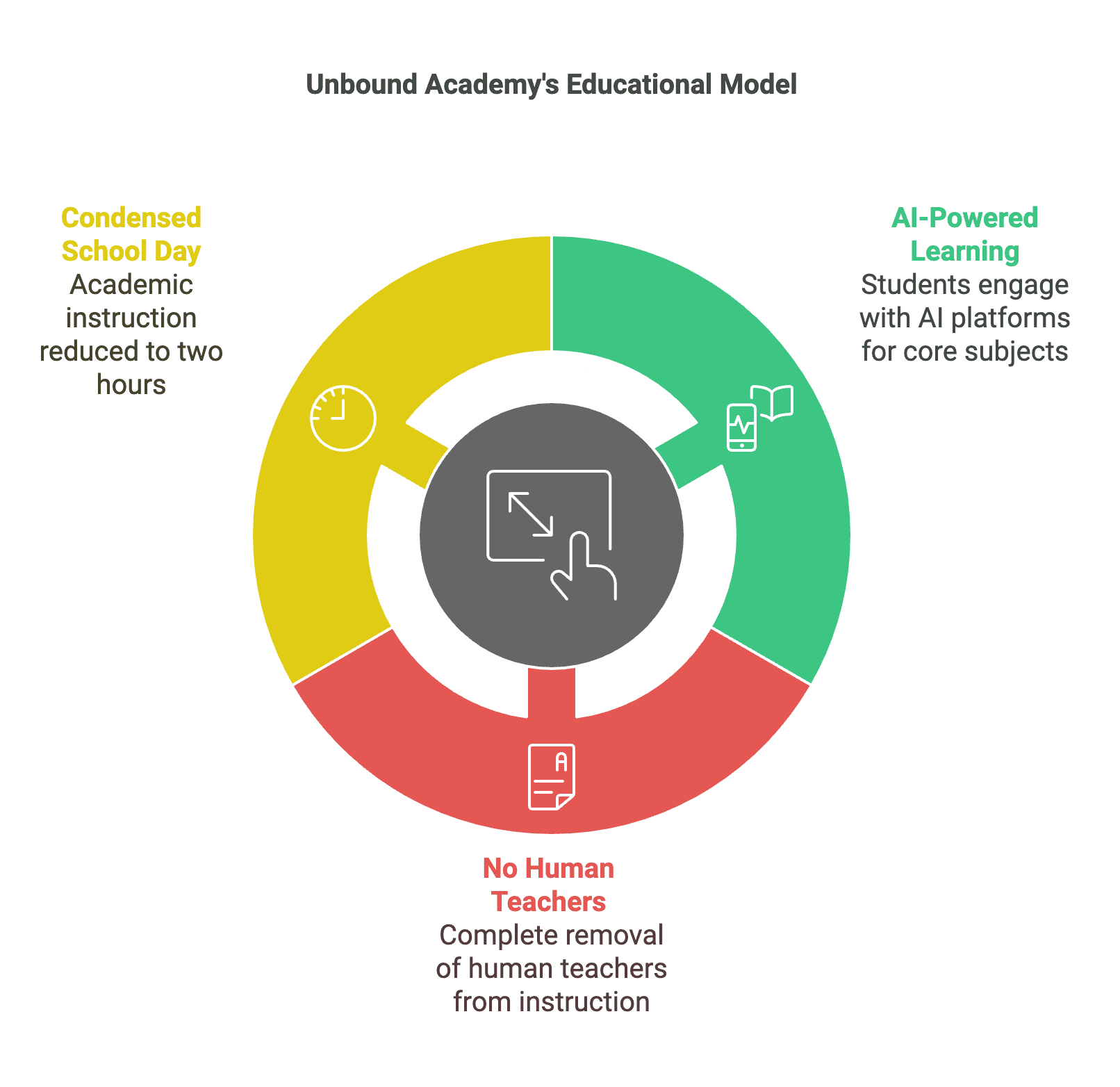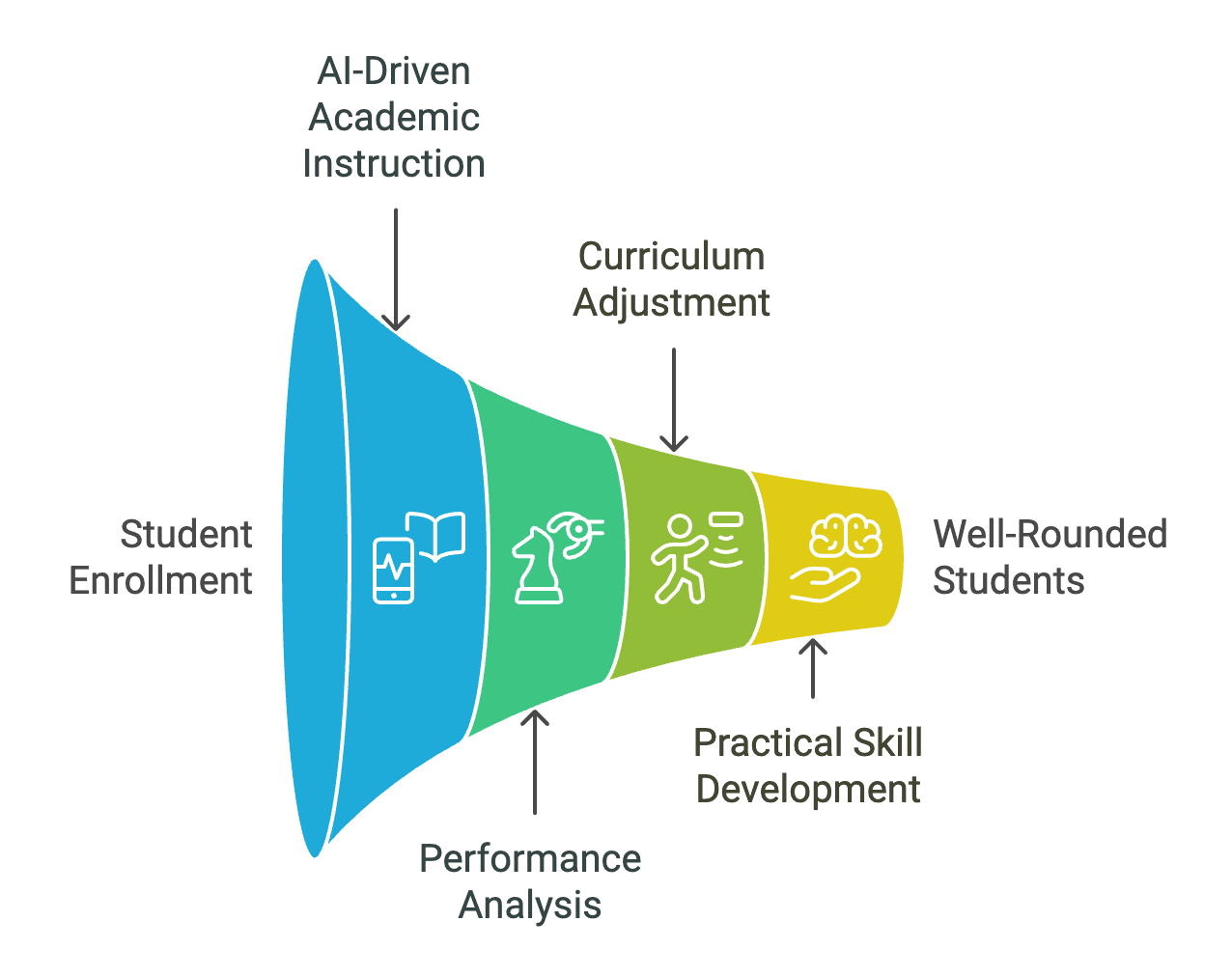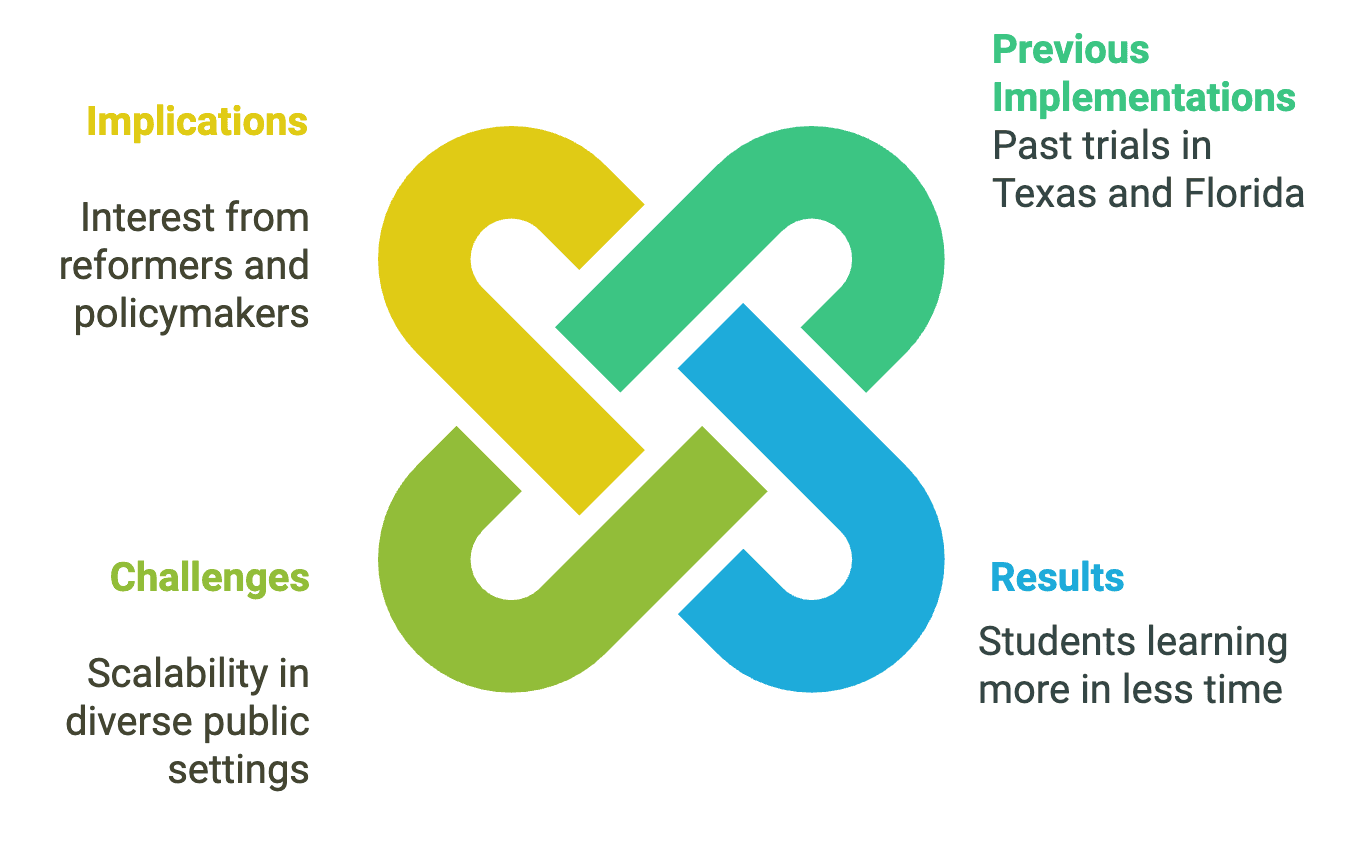Replacing Teachers with AI: Arizona's Bold Educational Gamble
In a groundbreaking move that has sparked intense debate across the educational landscape, Arizona's Unbound Academy is set to launch a revolutionary teaching model where artificial intelligence will replace human teachers for academic instruction. This bold initiative, approved by the Arizona State Board for Charter Schools in a contentious 4-3 vote, represents one of the most radical experiments in modern education history. Let’s know what it is all about.
A Revolutionary Educational Model

This new education model, designed for students from fourth through eighth grade, marks a decisive shift from traditional teaching methods. Instead of conventional classroom instruction, students will engage with sophisticated AI-powered platforms, including IXL and Khan Academy, for their core academic subjects.
This transformation reflects a growing trend toward technology-driven education, but Unbound Academy takes it several steps further by completely removing human teachers from academic instruction.
What makes this model particularly striking is its departure from the standard six-to-seven-hour school day. The academy has condensed traditional academic instruction into just two hours, arguing that focused, AI-driven learning can achieve better results in less time.
This dramatic reduction in academic hours represents a fundamental challenge to long-held assumptions about the structure of the school day.
How Does this New Teaching System Work Out?

The system operates on a sophisticated two-pronged approach that combines intensive AI-led academic instruction with practical skill development. During the two-hour academic period, students interact with adaptive learning programs that continuously monitor their progress in real time. The AI algorithms analyze each student's performance patterns, learning speed, and areas of difficulty, adjusting the curriculum's difficulty and teaching style accordingly.
This personalized approach means that if a student struggles with certain concepts, the AI system can immediately identify the issue and modify the presentation of the material or provide additional support. Conversely, students who grasp concepts quickly can move ahead without waiting for their peers. The system promises to eliminate the one-size-fits-all approach that often characterizes traditional classroom instruction.
The remaining school hours focus on practical skills development through hands-on workshops. Students receive guidance from mentors rather than traditional teachers, engaging in subjects like financial literacy, entrepreneurship, and public speaking. This hybrid model aims to combine efficient academic learning with real-world skill development.
Does this AI Teaching Model Have Proven Long-term Success?

While the concept appears revolutionary, it's not entirely untested. Unbound Academy has previously implemented similar programs in private schools across Texas and Florida under the Alpha Schools banner. According to their data, these trials produced remarkable results, with students reportedly learning twice the content in half the traditional time. These statistics have caught the attention of education reformers and policymakers nationwide.
However, it's crucial to note that these impressive results come from private school settings, where students often have additional resources and support systems at home. The effectiveness of this model in a public charter school environment, where student populations may be more diverse and face varying challenges, remains to be proven. The Arizona experiment will provide the first real test of this system's scalability in public education.
Is AI Teaching the Future?
While the potential benefits of AI-driven education are compelling, including personalized learning paths and efficient time management, significant concerns exist. The absence of human teachers raises questions about crucial aspects of education beyond academic instruction – emotional support, mentorship, and the human connection that characterizes effective teaching.
However, significant concerns exist about this approach. Critics argue that education extends far beyond the mere transmission of information. Human teachers provide crucial emotional support, serve as role models, and help develop social skills through personal interaction. They can identify and address non-academic issues that might affect learning, something current AI systems aren't equipped to handle.
The global education community is watching this development closely. Similar initiatives are emerging worldwide, though typically less radical in scope. London's David Game College has launched the Sabrewing program, incorporating AI platforms and virtual reality for teaching, while maintaining human teacher oversight. Arizona State University has integrated ChatGPT into its academic processes but as a supplementary tool rather than a replacement for professors.
Conclusion
Unbound Academy's bold experiment represents a pivotal moment in educational innovation. While the promise of personalized learning and improved efficiency is attractive, the long-term implications of removing human teachers from academic instruction remain uncertain. The success or failure of this program could significantly influence the future direction of education reform.
As we stand at this educational crossroads, the key question isn't just whether AI can effectively teach academic content, but whether it can provide the holistic educational experience necessary for developing well-rounded individuals. The results of this pioneering program will offer valuable insights into the future role of AI in education, potentially reshaping our understanding of teaching and learning in the digital age.
FAQs
1. How does the AI ensure student engagement?
The AI tracks real-time progress and adapts content difficulty and style based on student performance during the two-hour academic period.
2. What happens if a student struggles with the AI system?
The AI identifies difficulties and modifies material presentation immediately. Mentors are present to provide additional support during workshop sessions.
3. What research supports this teaching method?
The only evidence comes from Unbound Academy's own trials in private schools in Texas and Florida under Alpha Schools, claiming students learn twice as much in half the time.

Comments
Your comment has been submitted